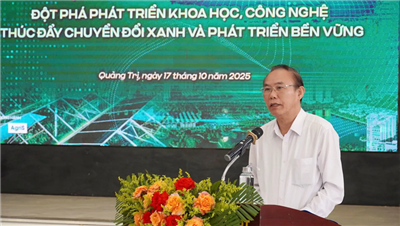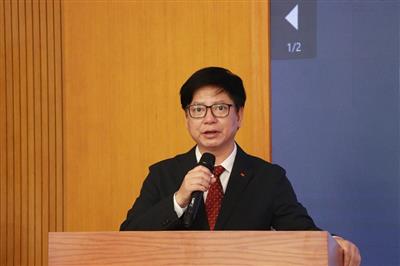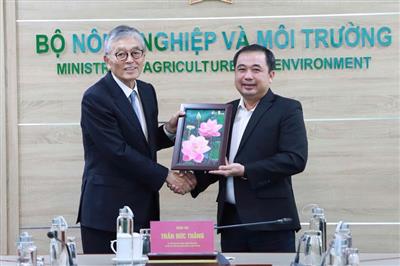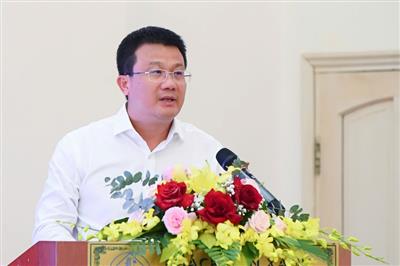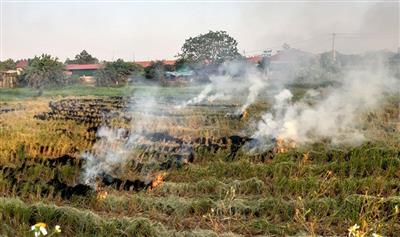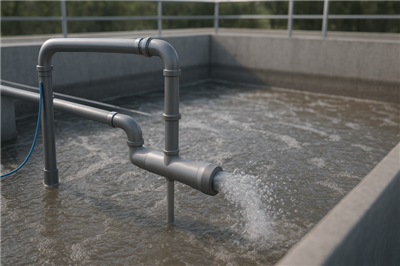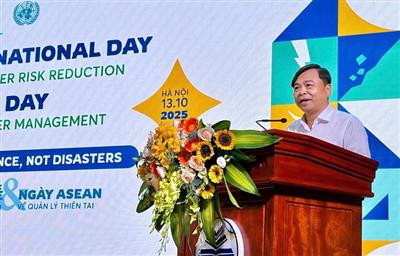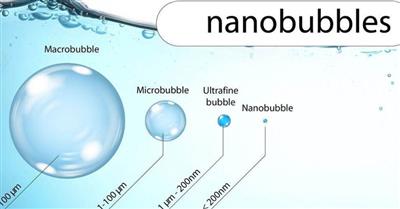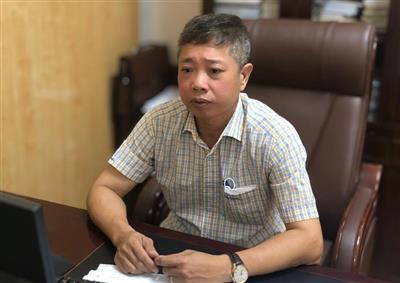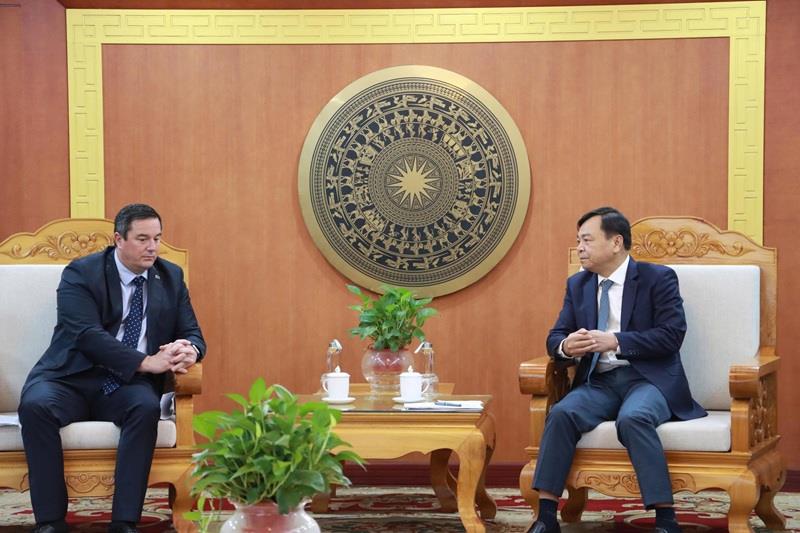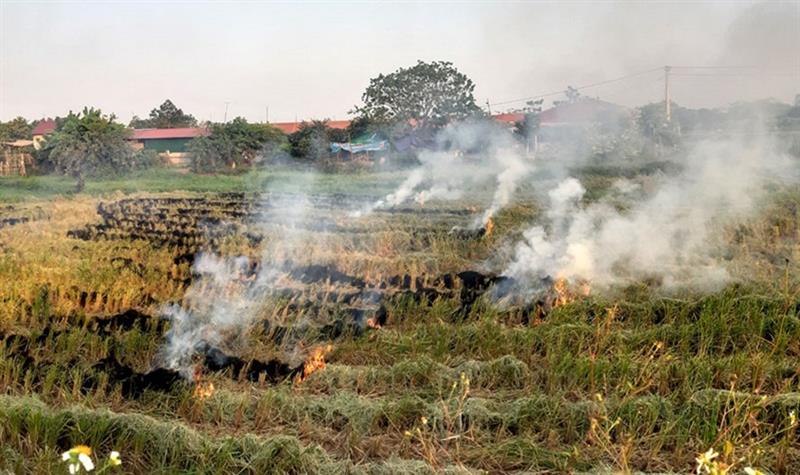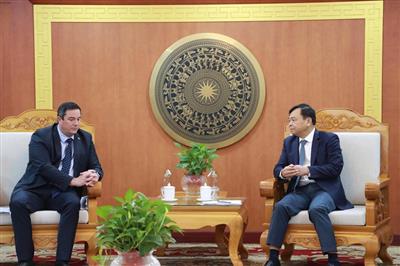
Strengthening cooperation between Vietnam and IFAD towards green, low-emission agricultural development
21/10/2025TN&MTVietnam and the International Fund for Agricultural Development (IFAD) are reinforcing their long-standing partnership to continue implementing projects on climate change adaptation, green transition, and sustainable development in the country.
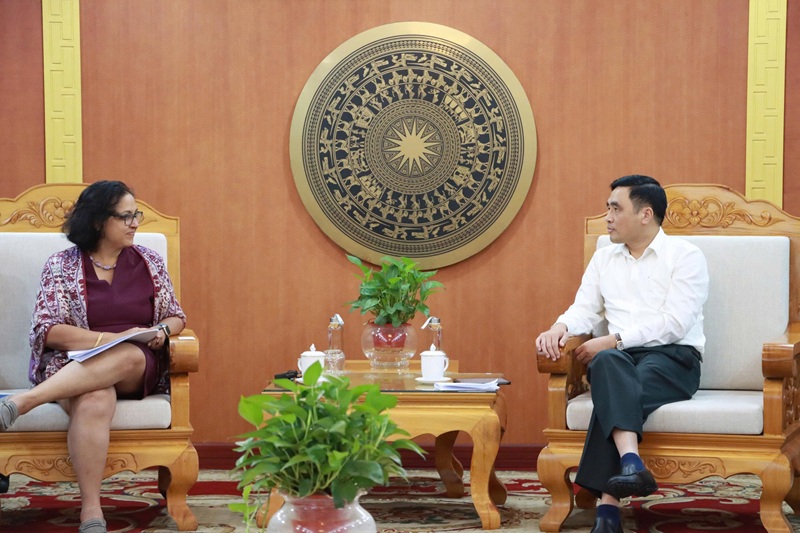
On October 21, Deputy Minister Nguyen Quoc Tri met with Ms. Reehana Raza, Regional Director, Asia and the Pacific Division, IFAD, to discuss strengthening cooperation on climate change adaptation, green transition, and sustainable agricultural development in Viet Nam
On October 21, at the headquarters of the Ministry of Agriculture and Environment, Deputy Minister Nguyen Quoc Tri received and held talks with Ms. Reehana Raza, Regional Director, Asia and the Pacific Division, IFAD.
Consolidating partnership for sustainable development
In his remarks, Deputy Minister Nguyen Quoc Tri highly appreciated IFAD’s role, commitment, and long-term support for Vietnam’s sustainable agricultural and rural development. IFAD has made significant contributions to shaping national strategies for agricultural and rural development, the Tam Nong (Agriculture – Farmers – Rural areas) Programme, the National target programme on new rural development, and numerous initiatives to improve farmers’ livelihoods, particularly in disadvantaged regions.
The meeting took place as Vietnam accelerates the implementation of its Green Growth Strategy, promotes low-emission development, and works towards achieving net-zero emissions by 2050.
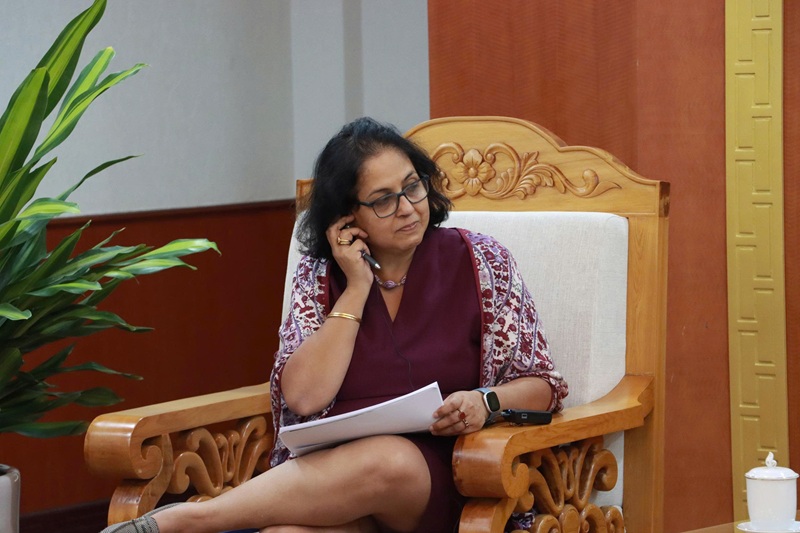
Ms. Reehana Raza commended Viet Nam’s progress in restructuring its agricultural sector and reaffirmed IFAD’s commitment to align future projects with the country’s priorities
Deputy Minister Nguyen Quoc Tri emphasized that the Ministry of Agriculture and Environment plays a key role in realizing the country’s green development goals through sustainable natural resource management, promotion of ecological and circular agriculture, pollution reduction, development of the domestic carbon market, and implementation of community-, ecosystem-, and nature-based climate adaptation solutions.
Ms. Reehana Raza congratulated Vietnam on the progress made in restructuring and streamlining its agricultural administration from central to local levels. She highlighted that IFAD is reviewing its portfolio to ensure new projects are aligned with Vietnam’s current institutional structure.
According to IFAD, these institutional and organizational reforms provide a strong foundation for continued cooperation in poverty reduction, climate change adaptation, agroecology, and land resource management. “We are currently in the review phase to prepare for a new project cycle, and we are fortunate to capture the priorities of the Government of Vietnam to develop concepts and proposals for the next phase,” Ms. Raza added.
Expanding cooperation on climate adaptation and emission reduction
Within the cooperation framework between the two sides, a number of key technical assistance projects are being implemented or prepared, reflecting the close partnership between the Ministry of Agriculture and Environment and IFAD.
Among them are the RECAF Project on reducing emissions in the Central highlands and South central coastal areas, which contributes to the objectives of the National REDD+ Action Programme; the project on Innovative Financing for Climate-Resilient Livelihoods in Wetlands, funded by the Adaptation Fund (AF) through IFAD; and new project proposals on climate-resilient water infrastructure in Thanh Hoa and Nghe An provinces, as well as a US$9 million GEF-funded project supporting Cao Bang and Thai Nguyen provinces.
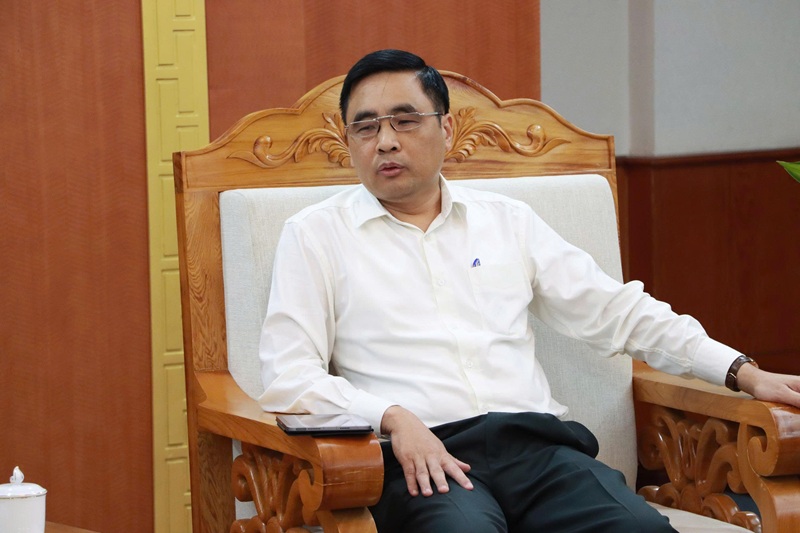
Deputy Minister Nguyen Quoc Tri proposed continued IFAD support for disadvantaged localities and for the project on "Sustainable development of one million hectares of high-quality, low-emission rice" linked to green growth in the Mekong Delta by 2030
Deputy Minister Nguyen Quoc Tri proposed that IFAD continue to provide grant support for disadvantaged localities to promote high value-added and sustainable agricultural production. He also suggested that IFAD consider supporting the project on "Sustainable development of one million hectares of high-quality, low-emission rice" associated with green growth in the Mekong Delta by 2030, through capacity building, financial assistance, expansion of pilot models, and strengthening of value chain linkages in the rice sector.
“In the time ahead, we hope that IFAD will continue to support Vietnam in improving institutional frameworks and enhancing market connectivity. The Government of Vietnam has set a national growth target of 8.3–8.5% for 2025, with the agriculture and environment sector expected to grow by 4% or more. Therefore, we look forward to IFAD’s continued cooperation in strengthening institutions, promoting market linkages, and advancing sustainable agricultural development,” the Deputy Minister emphasized.
He also proposed that IFAD maintain technical assistance for the National target programme on poverty reduction and the new rural development programme in the next phase, particularly in areas most vulnerable to climate change.
The meeting marked an important milestone in reinforcing the strategic partnership between Vietnam and IFAD, towards a green, low-emission, and inclusive agricultural sector, contributing to Vietnam’s commitment to achieving Net Zero by 2050.
Khanh Linh - Ngoc Huyen




